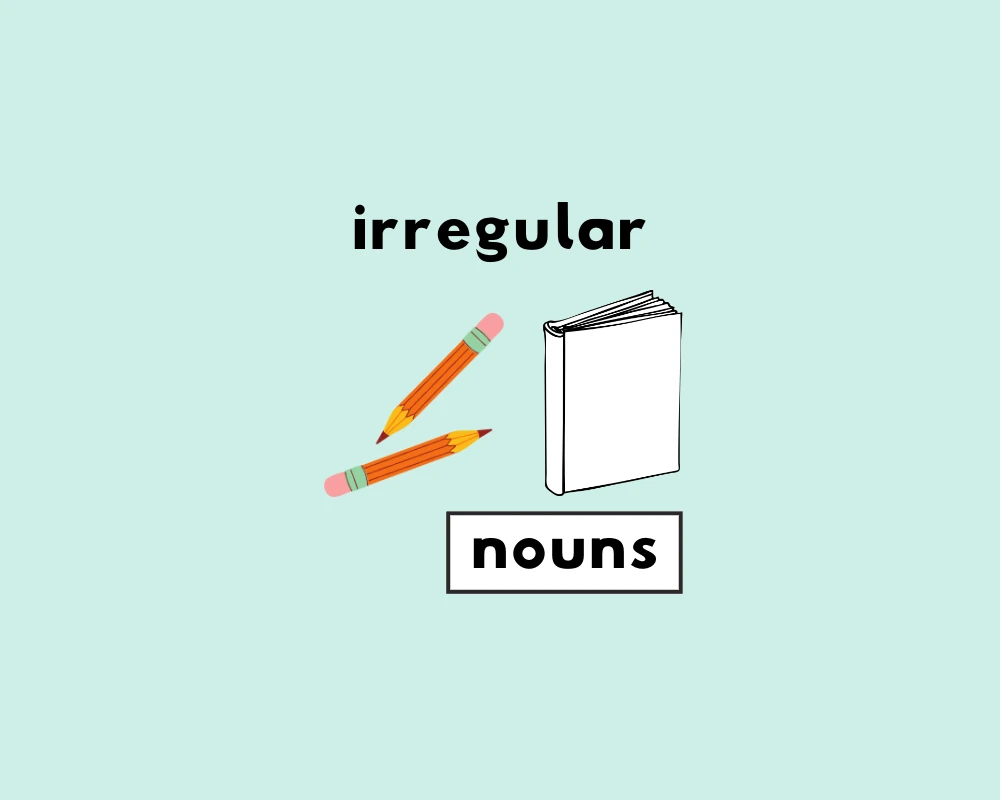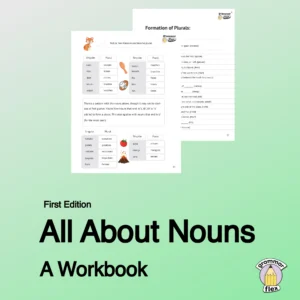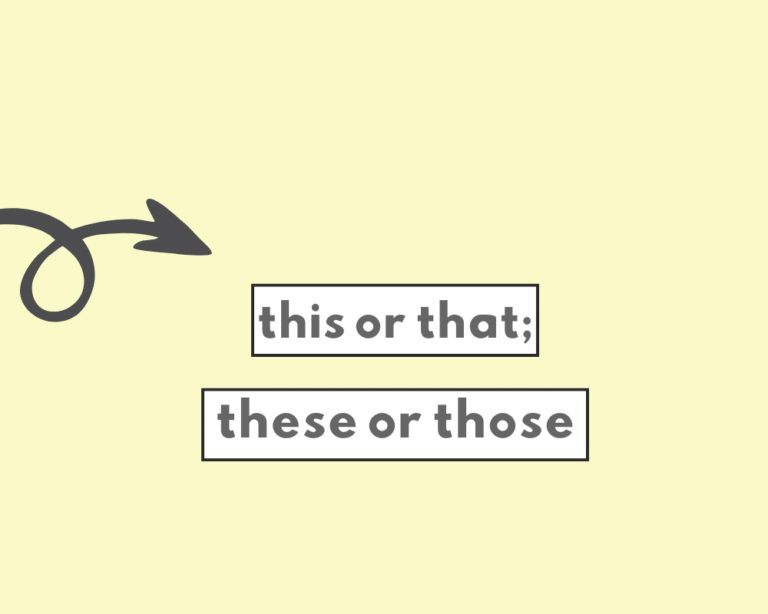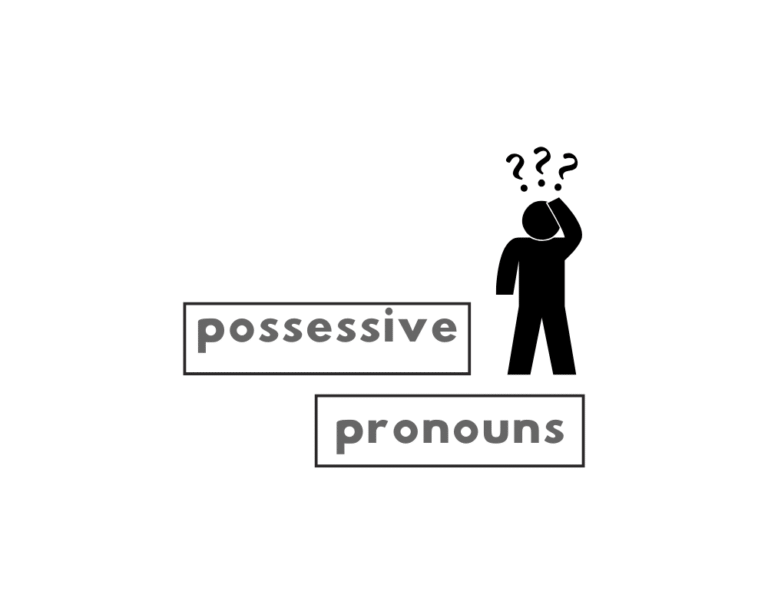Regular vs. irregular nouns
In English, we tend to like to define things by kind or type. Similar to how regular and irregular verbs are categorized by the use of -ed in the past tense, nouns have their own way to separate between regular and irregular. The difference between regular and irregular nouns is this:
There were many children playing in the park.
She needed to brush her teeth after eating candy.
There were many childs playing in the park.
She needed to brush her tooths after eating candy.
- Regular nouns end in -s / -es in their plural forms.
- Irregular nouns end in something other than -s / -es in their plural forms.
When it comes to nouns, we obviously aren’t speaking about the change a noun goes through in tense, since nouns have no tense. Instead, it’s how a noun changes in its form to mean one thing (or person, place), or more than one thing/person/place (e.g., the change from singular to plural). By and large, the majority of English nouns use the conventional -s or -es to indicate a plural:
- dog ➜ dogs
- cat ➜ cats
- table ➜ tables
- fox ➜ foxes
- tomato ➜ tomatoes
These are regular nouns since they add s/es as a plural. As you can see from the list above, some just add an s, where others add es. When should you use s or es? And what do irregular nouns end in if not s/es? This will be answered, and we’ve also written out a list in this article of each of the irregular plural nouns in English, for your convenience and use.
Regular noun endings
Most nouns will just add n -s. However, we add es to singular nouns that end in –s, –ss, –sh, –ch, –z and sometimes -o; as in:
- dress ➜ dresses
- ash ➜ ashes
- bench ➜ benches
- box ➜ boxes
- tomato ➜ tomatoes
- quiz ➜ quizzes
Notice how some of the nouns above that end in “z” or “s” adds a double “z” or “s” before “es” (this is the correct form for nouns ending in “z” or “s”). With nouns that end in “y” as a singular, we replace the “y” with “ies” as a plural:
- puppy ➜ puppies
- baby ➜ babies
If the letter before the “y” is a vowel and not a consonant, add “s’ (not “ies”; e.g., ray/rays, boy/boys). Most nouns that end in “ff”, “f” or “ef” add “s” as a plural, but some nouns that end in “f” or “fe” add “ves” as a plural. See the difference:
- belief ➜ beliefs
- cliff ➜ cliffs
- chief ➜ chiefs
- roof ➜ roofs
- chef ➜ chefs
Whereas other nouns ending in “f” or “fe” add “ves” as a plural:
- wolf ➜ wolves
- calf ➜ calves
- knife ➜ knives
- wive ➜ wives
Singular nouns that end in “o” usually add “es” as a plural, but not always. Some will just add “s”, others “es”, and (this part gets really whacky) with some nouns, you can use either “s” or “es”. The options are practically endless. Take a look:
- tomato ➜ tomatoes
- potato ➜ potatoes
- volcano ➜ volcanoes (or volcanos)
- mango ➜ mangoes (or mangos)
These nouns that end in “o” just add “s”:
- video ➜ videos
- photo ➜ photos
- halo ➜ halos
Think of irregular plural nouns as rule-breakers! Don’t add -s or -es; learn their unique, “rebellious” forms like children or teeth.
Irregular noun patterns
By looking at them, it appears like irregular plurals follow no rules, but if you look closely, you’ll see patterns that makes learning them much easier. Apologies for the repetitiveness, but just like when it comes to learning irregular verb forms, recognizing the patterns amongst their irregular-ness is an extremely effective way to remember them (I encourage it). Let’s get into the nuts and bolts of these ostensibly irregular nouns.
Some nouns add -en, or swap their inner vowels with another pair of vowels:
These nouns add -en:
- child ➜ children
- ox ➜ oxen
These nouns swap their inner vowels:
- woman ➜ women
- man ➜ men
- person ➜ people
- mouse ➜ mice
These swap their inner vowels of double o’s with e’s:
- goose ➜ geese
- tooth ➜ teeth
- foot ➜ feet
Side-note: don’t get confused—just because goose is geese plural, doesn’t mean moose becomes meese!
Nouns that end in -sis usually switch to ses as a plural:
- synopsis ➜ synopses
- crisis ➜ crises
- oasis ➜ oases
Latin nouns that end in -um switch to -a:
- memorandum ➜ memoranda
- curriculum ➜ curricula
- colloquium ➜ colloquia
Latin nouns that end in -ix switch to -ces/-xes:
- matrix ➜ matrices/matrixes
- apex ➜ apices/apexes
- index ➜ indices/indexes
Some nouns don’t change at all from singular to plural:
- sheep ➜ sheep
- deer ➜ deer
- aircraft ➜ aircraft
A mass noun names something we cannot physically count, or things that exist in a form which cannot be counted, either because they are abstract or too numerous to count. Because of this, abstract or mass nouns stay singular in form. Some examples are:
- water
- oil
- sand
- art
A comprehensive list of irregular nouns in English
| Singular | Plural |
|---|---|
| city | cities |
| baby | babies |
| pony | ponies |
| oasis | oases |
| diagnosis | diagnoses |
| synthesis | syntheses |
| thesis | theses |
| paralysis | paralyses |
| psychosis | psychoses |
| synopsis | synopses |
| Singular | Plural |
|---|---|
| analysis | analyses |
| crisis | crises |
| hypothesis | hypotheses |
| prognosis | prognoses |
| basis | bases |
| ellipsis | ellipses |
| parenthesis | parentheses |
| goose | geese |
| foot | feet |
| tooth | teeth |
| Singular | Plural |
|---|---|
| child | children |
| man | men |
| woman | women |
| person | people |
| ox | oxen |
| die | dice |
| louse | lice |
| mouse | mice |
| fungus | fungi/fungusses |
| octopus | octopi/octopuses |
| Singular | Plural |
|---|---|
| syllabus | syllabi/syllabuses |
| stimulus | stimuli/stimuluses |
| alumnus | alumni |
| platypus | platypi/platypuses |
| locus | loci/locuses |
| radius | radii/radiuses |
| focus | foci/focuses |
| larva | larvae/larvas |
| genus | genera/genuses |
| datum | data |
Worksheet: Irregular plurals
According to the post, what is the correct plural form of “child”?
How do most regular nouns form their plural, according to the blog post?
Based on the post, when a singular noun ends in -y preceded by a consonant, how is its plural formed?
The post mentions that some nouns ending in -f or -fe form their plural by adding:
Which of the following is given in the post as an example of the incorrect use of a regular plural ending for an irregular noun?
She needed to brush her ______ after eating candy.
There were many ______ playing in the park.
He carefully washed the fresh ______ before making the salad.
The old hunter told tales of tracking giant ______ in the forest.
The litter of ______ tumbled over each other in the basket.
FAQs
How are irregular nouns defined?
+
Give an example of an irregular plural.
+
Why is using “-s” on irregular nouns wrong?
+
Do irregular nouns end in -s or -es?
+
What is the difference for irregular nouns?
+
Yash, D. "Irregular Plural Nouns." Grammarflex, Jul 15, 2025, https://www.grammarflex.com/irregular-plural-nouns/.











